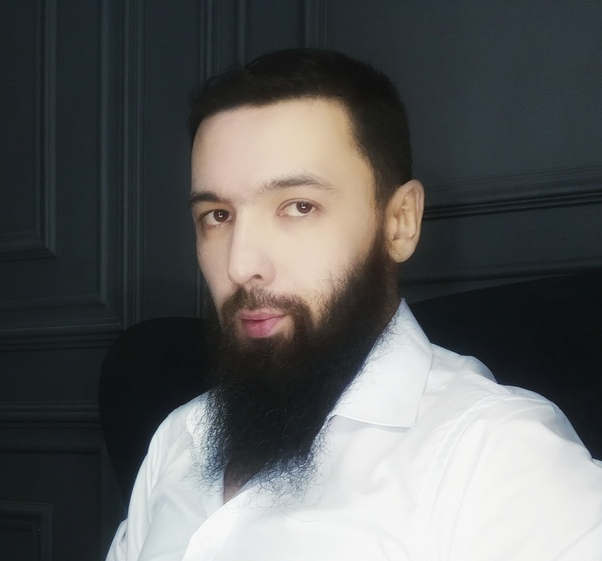
Breast cancer remains the most common cancer among women worldwide, accounting for over 2.3 million cases in 2020 alone. Despite significant advances in medical treatment, many patients continue to seek complementary and spiritual therapies to support their healing journey. Among these is Ruqyah, the Islamic practice of reciting Qur’anic verses for healing and protection. But what does science say about Ruqyah’s impact on breast cancer? Can a spiritual practice have observable effects on cancer cells or the psychological resilience of patients?
In this article, we explore the existing scientific literature and case studies that investigate Ruqyah’s influence on breast cancer, particularly focusing on its psychological, emotional, and even cellular effects. This exploration is not meant to replace conventional treatment, but to shed light on the potential role Ruqyah may play as a complementary support.
UNDERSTANDING RUQYAH: A BRIEF OVERVIEW
Ruqyah is a spiritual healing practice rooted in Islamic tradition. It typically involves the recitation of specific verses from the Qur’an, such as Surah Al-Fatiha, Ayat al-Kursi, and the last two verses of Surah Al-Baqarah, among others. Its purpose is to seek protection and healing from physical, emotional, or spiritual afflictions. While Ruqyah is often associated with relief from spiritual ailments, many believers have turned to it during times of physical illness, including cancer.
The spiritual foundation of Ruqyah is clear. However, modern interest lies in understanding whether this practice holds any measurable influence from a scientific standpoint. Can recited words and spiritual intention create a shift at the biological or psychological level?
RESEARCH ON RUQYAH AND BREAST CANCER
In recent years, a few pioneering studies have sought to explore the bio-physiological effects of Qur’anic recitation, including Ruqyah, on cancer cells. Notably, research conducted at various universities in Malaysia and Indonesia has shown promising—but still preliminary—results.
One such study involved the MCF-7 breast cancer cell line, a widely used in vitro model for breast cancer research. Researchers exposed these cancer cells to recorded Ruqyah audio, focusing on verses traditionally used for healing. After multiple exposure sessions, the researchers observed a reduction in cell proliferation and viability compared to control groups not exposed to Ruqyah. Some cells also exhibited signs of apoptosis—programmed cell death—which is a desirable outcome in cancer treatment.
While the exact mechanism behind these changes remains unclear, researchers hypothesize several possibilities:
Frequency resonance: The rhythmic patterns and frequencies of Qur’anic recitation may affect cellular behavior. This concept is loosely aligned with research into sound therapy and vibrational medicine.
Psychoneuroimmunology: Although the MCF-7 study was conducted in vitro, parallel studies involving human patients suggest that spiritual practices, including Ruqyah, may positively impact immune function, mood, and stress regulation—all critical factors in cancer progression and recovery.
It’s essential to approach these findings with scientific humility. These studies are few, often conducted on a small scale, and require broader replication to confirm results. However, they open the door to a fascinating intersection between faith and biology.
PSYCHOLOGICAL IMPACT OF RUQYAH
Beyond cellular research, the psychological benefits of Ruqyah are far more widely observed and reported. A diagnosis of breast cancer often brings an avalanche of emotional turmoil: fear, sadness, anxiety, and uncertainty. These emotional states can negatively affect treatment outcomes, adherence to medication, and even immune response.
Several qualitative studies and patient testimonials have reported improved emotional stability, inner peace, and resilience after engaging in Ruqyah. This is supported by the broader field of psycho-oncology, which acknowledges that spiritual practices and strong faith can bolster mental health during cancer treatment.
Key psychological effects of Ruqyah among breast cancer patients include:
Reduced anxiety and panic attacks
Improved sleep quality
Greater acceptance and hope
Enhanced coping mechanisms during chemotherapy or surgery
A study published in the Journal of Religion and Health in 2021 surveyed 200 Muslim women undergoing treatment for breast cancer in Southeast Asia. The results showed that those who actively practiced Ruqyah or spiritual healing reported significantly lower levels of anxiety and higher levels of perceived control over their illness.
RUQYAH AS A COMPLEMENTARY THERAPY
It’s crucial to frame Ruqyah not as a replacement for medical treatment, but as a potential ally in the fight against cancer. Integrative medicine—a field that combines conventional medical treatments with alternative or complementary practices—has grown rapidly over the past two decades. Ruqyah, while rooted in faith rather than clinical guidelines, fits naturally within this holistic paradigm.
Many patients find strength, purpose, and spiritual grounding through Ruqyah, which may translate to better treatment adherence and improved quality of life. As long as patients continue to consult with their healthcare providers and use Ruqyah in a supportive context, its role can be profoundly meaningful.
CONCLUSION
While the scientific exploration of Ruqyah’s effects on breast cancer is still in its infancy, early results are intriguing. Research into cell behavior, emotional well-being, and spiritual resilience all point to the potential benefits of this sacred practice. Though not a cure, Ruqyah may offer a unique, faith-based form of support that complements the biological and psychological aspects of cancer treatment.
As interest in holistic health grows, the integration of spiritual practices like Ruqyah into patient care should be approached with curiosity, respect, and scientific rigor. For patients seeking deeper meaning and emotional support on their cancer journey, Ruqyah stands as a testament to the profound connection between faith and healing.

